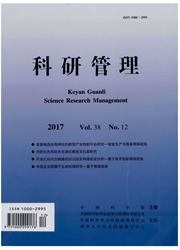

 中文摘要:
中文摘要:
本文基于产品技术生命周期理论和工艺创新理论,以2002--2008年中国制造业上市公司为对象,考察了技术升级投资与产品成本之间的关系。研究发现,技术升级投资能有效降低企业产品成本从而提高企业绩效,平均而言,增加1元的技术升级投资,可以相应减少销售成本9.0813元,技术升级投资对于降低销售成本具有明显的杠杆效应;此外,技术升级投资能够积极影响未来产品成本的变动趋势,技术升级投资能显著增加企业营业成本下降的变动幅度,并且能有效缓解销售成本率增长变动的趋势。本文的结论对于深入认识技术升级投资的经济后果提供了新的视角和证据,并为国家深化自主创新和企业合理配置创新资源提供了决策依据和政策建议。
 英文摘要:
英文摘要:
Based on the theories of technology life cycle and process innovation, this paper deeply explores the relationship be- tween the technology renovation investment and the product cost using the Chinese manufacturing listed companies for the period 2002 -2008 as research samples. It is found out upon research that the technology renovation investment can effectively reduce the product cost so as to improve the company performance. Technology renovation investments have a significant leverage effects to reduce product costs. On average, the increase of I yuan in technology renovation investment can reduce the sale cost by 9. 0813 yuan correspondingly, so the technology renovation investment has an obvious leverage effect on the reduction of the sale cost. In addition, the technology renovation investment has a positive influence on the future trend of the product cost. Moreover, the technology renovation investment can significantly increase the range of variation in the operating cost reduction and alleviate effectively the trend of the sale cost growth. The conclusion of this paper provides not only a new perspective and evidence for the economic consequence of the technology renovation investment, hut also some valuable decision - making basis and policy - mak- ing suggestions for deepening the enterprise independent innovation and allocating the innovation resources rationaUy.
 同期刊论文项目
同期刊论文项目
 同项目期刊论文
同项目期刊论文
 期刊信息
期刊信息
